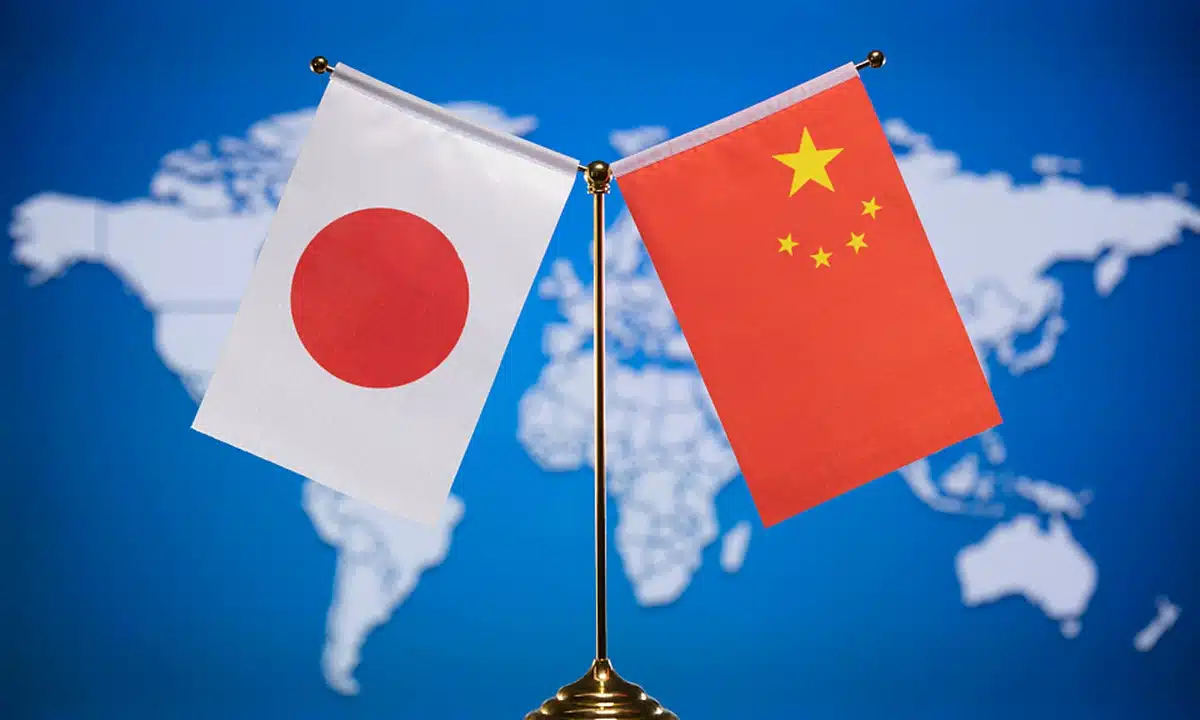A group of approximately 200 Japanese business leaders and CEOs recently made their way back to China, marking their first visit since 2019. Their objective was to strengthen economic relations amidst challenging geopolitical circumstances that have put a strain on the bilateral ties between the two countries.
Since 1975, Japan has been sending economic delegates to China on a regular basis. These visits, on the other hand, came to a halt during the COVID-19 era, when China implemented stringent border restrictions as a response to the pandemic.
Meeting at the Highest Level
At a meeting that took place on Thursday at the prestigious Great Hall of the People, representatives from the influential Keidanren, which is also known as the Japan Business Federation, and the Japan-China Economic Association met with the Premier of China, Li Qiang.
“China-Japan relations are currently at a crucial juncture of carrying forward the legacy and embracing the future,” stated Wang Wenbin, a spokesperson for the Chinese foreign ministry, during a routine press conference.
“We have high expectations for the Japanese economic community to play a proactive role in promoting mutually beneficial collaboration between China and Japan.”
Located in Beijing, Toshihiro Ueda, vice chairman of the Japanese Chamber of Commerce in China, expressed to Reuters that the discussions with Li and other meetings were critical in reaffirming the mutual commitment to enhancing business relations.
“We openly discussed a wide range of subjects and exchanged our perspectives to address the obstacles,” stated Ueda, who actively participated in the discussions.
The Countries Continue Their Relationship Despite Many Disagreements
The relationship between Japan and China has become tense due to disagreements between the two countries’ economies, which are the second and third largest in the world, respectively, regarding various issues. These disagreements range from Japan’s decision to discharge treated radioactive water into the ocean to China’s decision to imprison Japanese citizens on suspicion of espionage.
The Chinese government has made allegations that Prime Minister Fumio Kishida’s government is imitating the United States in its efforts to impede China’s economic development. Japan’s restrictions on exporting developed chipmaking machinery to China have fueled these allegations.
On the other hand, during a rare meeting in November between Japanese Prime Minister Yoshihide Kishida and Chinese President Xi Jinping, both leaders acknowledged the significance of cultivating mutually beneficial relations between their countries.
A significant amount of Japan’s economy is dependent on China, where Japanese companies have been investing for a long time in the establishment of production supply chains and the cultivation of partnerships with local counterparts.
China Is an Important Partner for Japan
In 2022, China held the position of Japan’s largest export market, with a total value of $145 billion. Additionally, it also served as the primary source for imports, amounting to a significant $189 billion.
However, a recent yearly survey reported that the percentage of Japanese companies intending to expand their presence in China dropped below 30% for the first time. Several companies expressed apprehension about economic instability, while others emphasized the risks associated with geopolitics.
Last year, China detained a Japanese executive who worked for the pharmaceutical company Astellas Pharma on skepticism of engaging in espionage activities. According to Japanese officials, the decision has had a significant impact on business operations, causing a noticeable decrease in activity.
“China’s police and judicial activities are conducted in accordance with facts and legal principles,” stated the Chinese spokesperson.
“As long as businesses operate within the confines of the law, there is no cause for concern. We extend our warm invitation to companies from all nations, including those hailing from Japan.”
An increasing number of Japanese companies are also facing challenges with declining sales in China. This is primarily due to the intensifying competition from local businesses, the uncertain economic situation in China, and the negative sentiment towards Japan following the release of wastewater from the Fukushima facility.
Japanese car manufacturers Toyota (NYSE:TM) and Nissan (OTC:NSANY) are currently facing challenges in China as they need help to keep up with local competitors in the electric vehicle (EV) sector. This has resulted in a decline in their market share in the world’s largest automobile market.



Just wish to say your article is as surprising The clearness in your post is just cool and i could assume youre an expert on this subject Fine with your permission allow me to grab your RSS feed to keep updated with forthcoming post Thanks a million and please keep up the enjoyable work
This is hands down the best article I’ve read on this topic.